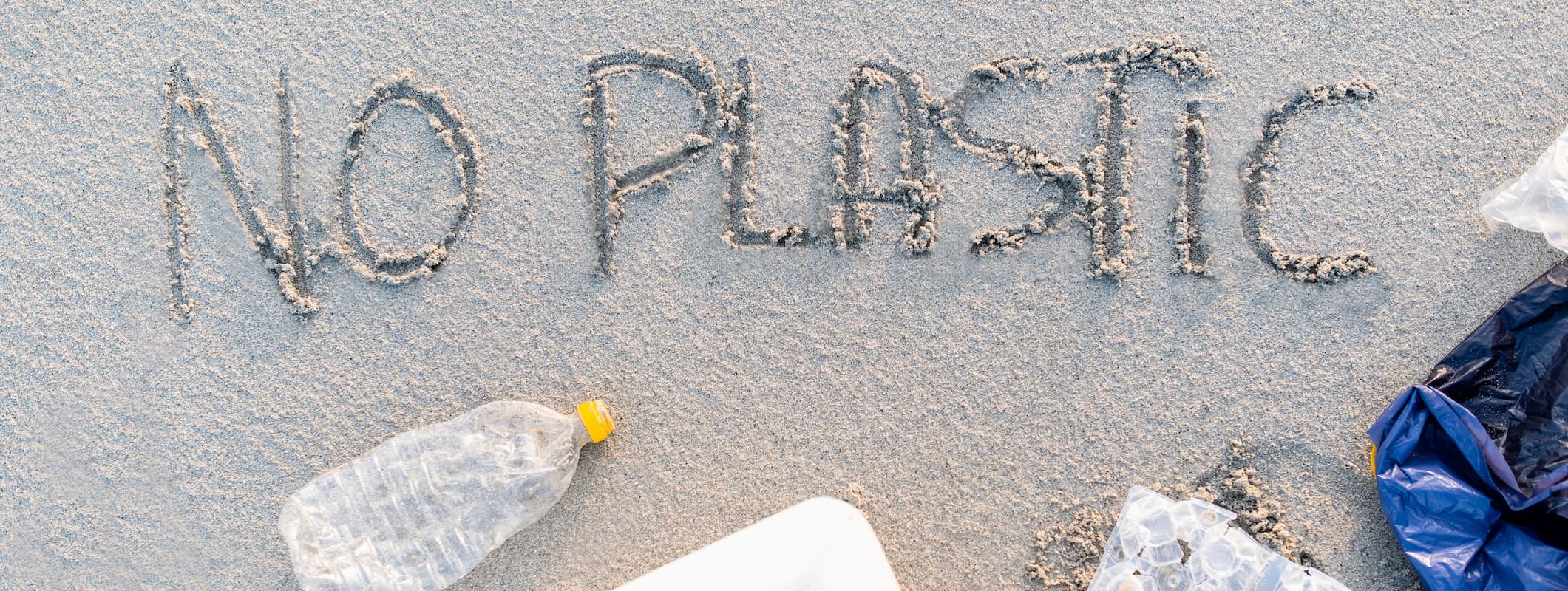Uniting for a Plastic-Free Future: Brunel Foundation’s Donation to Seven Clean Seas
ESG Sustainability

ESG Sustainability
To celebrate the Brunel Foundation's 10th anniversary, an internal auction was organised to enable Brunel staff from around the world to bid for a variety of items. These included talents offered by Brunellers themselves, such as language and dance lessons. The auction attracted 1,600 bids and raised a total of 14,474 euros. The proceeds were donated to Seven Clean Seas, an organisation committed to removing plastic from the oceans. During our conversation with Tom Peacock-Nazil, Founder and CEO of Seven Clean Seas, he shared details about their various cleanup projects in Southeast Asia and explained how our donation will support efforts to expand their data collection capabilities.
Tom and his wife had been living in Southeast Asia for a long time and were aware of plastic pollution and waste management issues in countries such as Indonesia and Thailand. However, they did not feel compelled to act until they embarked on a fateful trip that changed everything for them.
In June 2018, the couple spent a lovely day on the beach of Kho Lippe, a beautiful island on Thailand’s Andaman Coast. Returning the following day, however, they found it covered in a huge pile of trash and plastic debris, a mix of post-consumer goods and fishing gear which had washed up during a storm. This experience shocked them into action.
On returning home to Singapore, Tom and his wife started hosting beach cleanups to educate people and raise awareness about plastic pollution. Their aim was to encourage widespread action by creating the same feeling of shock they themselves had experienced. Tom explains: "Until people see it, they won't take action." As a result, they began to attract the interest of companies who inquired about running corporate social responsibility (CSR) events. This was the moment when they realised that they could generate revenue to fund larger cleanup projects. Thus, Seven Clean Seas was born with the aim of addressing both environmental problems and social injustices related to plastic pollution. Tom emphasises an important point: “Many people are not discussing the social aspects of this issue, and we’re committed to changing that”.


In 2020, when Covid-19 hit, all the CSR events were cancelled, leaving Tom and co-founder Ben Moody – who had joined a few months earlier – searching for new ways to involve more clients in plastic offsetting, a relatively new concept aimed at reducing the amount of plastic waste generated by businesses. With plastic offsetting, companies can invest in projects that help remove or prevent an equivalent amount of plastic waste from entering the environment, effectively offsetting the amount of plastic they produce. These projects include initiatives such as coastal cleanups, marine plastic recovery, river plastic interception and coastal community waste management.
All of the organisation's projects are located in Southeast Asia, one of the world's most plastic-polluted regions. The team focuses its efforts here with good reason. “If we're serious about tackling this plastic pollution problem,” Tom notes, “we need to start where the leakage is highest.” One of the first projects funded by plastic offsetting is located in Bintan, Indonesia, a picturesque island with a marine protected area that depends heavily on tourism. However, during the coronavirus pandemic, most locals lost their jobs overnight. To address this issue, Seven Clean Seas hired 18 individuals from rural communities to undertake environmental cleanup efforts on mangrove islands and in shoreline rivers, generating new employment opportunities in the process. Moreover, thanks to a generous donation, Seven Clean Seas was able to construct a materials recovery facility where all materials are now collected for processing and recycling. In addition, the facility is used for community education, stakeholder engagement and corporate social responsibility activities. These activities include partnerships with companies like Brunel, whose Singapore team has worked with Seven Clean Seas to remove plastic from marine protected areas. Their most ambitious project to date, however, is the HIPPO, a river plastic recovery system designed to reduce the amount of plastic entering the ocean from some of the world's most polluted rivers. "We know that 70% of all ocean plastic comes from rivers," Tom tells us. "It is therefore essential to invest in river plastic recovery technology that intercepts plastic before it reaches the ocean. That makes a significant impact.”

The HIPPO is a low-cost scalable solution that is powered by both solar and wind energy.
With multiple projects currently in progress, Seven Clean Seas gathers huge volumes of data on a daily basis. "We track the number of cleanups performed over the years, the total weight of plastic collected, the distance covered, the number of cleanup hours and the number of people involved,” Tom explains. “And every day, we take a 20% sample to categorise the various materials we collect." This information is crucial to regulate plastic pollution. However, the team currently spends far too much time collecting data by hand, which is not cost-effective. To remedy this situation, the team needed to build a dedicated database and invest in a technological solution. "Automating the way we manage data was our most pressing need, and thanks to Brunel's grant, we can now fund almost 100% of the cost of the new system,” Tom smiles. “This will enable us to scale up our data collection, and that is fantastic news”. In addition to saving time and effort, the new data management system will allow Seven Clean Seas to present its data to various parties and stakeholders who need to make important policy decisions.

The health of the planet and its inhabitants relies heavily on clean seas. The Brunel Foundation is committed to supporting organisations such as Seven Clean Seas in their efforts to reduce pollution and protect our oceans. Pictured from left to right in the Brunel Singapore office are Ben Moody, Co-Founder of Seven Clean Seas; Jon Proctor, Brunel's Managing Director for Asia; and Tom Peacock-Nazil, Co-Founder and CEO of Seven Clean Seas.